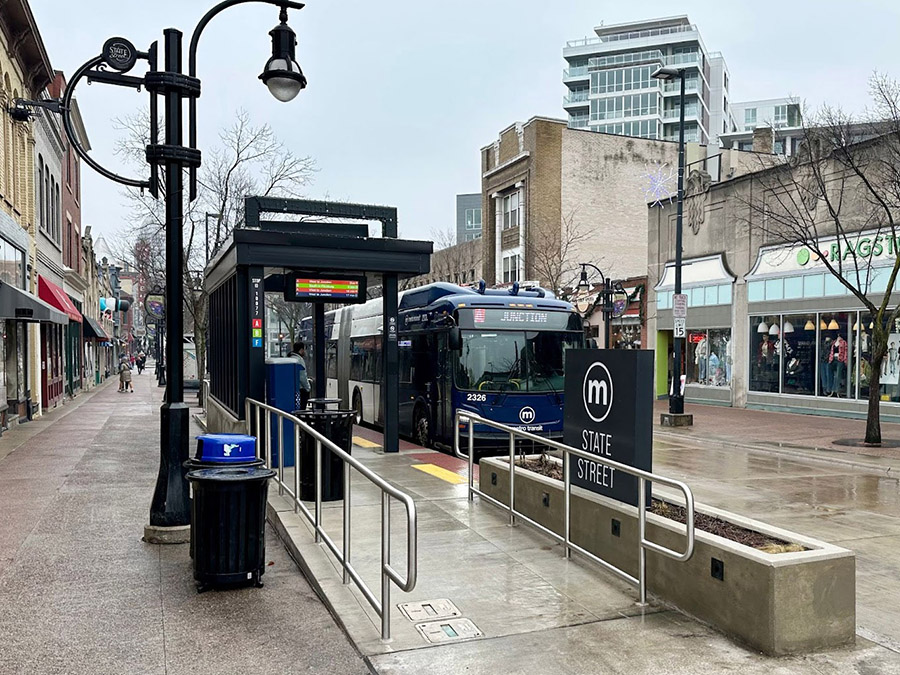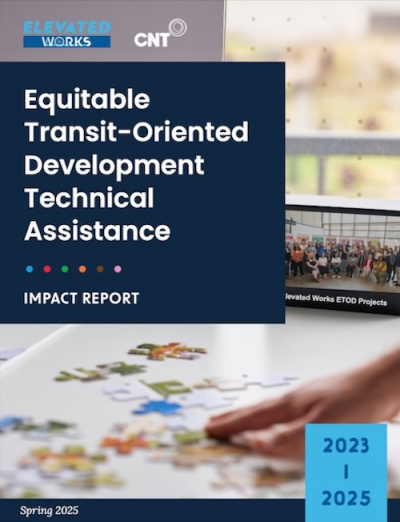New HUD Rules Emphasize Fair Housing and Better Access to Transit and Jobs
At a press conference in Chicago today, HUD Secretary Julian Castro announced new rules nationwide aimed to help cities build inclusive communities near transit and jobs, with good schools and a high quality of life. Those rules, titled Affirmatively Furthering Fair Housing (AFFH), ask communities receiving HUD funding to demonstrate how they are using their investments to proactively create communities with equal access to opportunity.
As Secretary Castro pointed out, Americans of all backgrounds and incomes deserve communities where they have choices: choices between housing units, between career ladders, and between transportation options. No American should be stranded in a neighborhood with a long commute, poor transit service, or lack of job opportunities. When communities target their investments to create diverse, mixed-income communities with good access to transit and jobs, as well as quality schools and grocery stores, mobility can improve and the cost of living can go down.
Municipalities can achieve this, and meet HUD’s AFFH goals, by proactively implementing and tracking equitable transit-oriented development (TOD). When TOD includes everybody, it can reduce reliance on cars, improve the cost of living, reduce greenhouse gas impacts, and sustain municipal tax bases. When communities target their HUD investments to TOD areas, it can benefit low-income families by increasing access to a wider variety of jobs via transit and, by extension, long-term economic opportunity.
CNT has created two tools to help communities meet these rules.
Our All Transit tool measures the number of jobs within a 30-minute transit trip from any location in the country. The disparity can be significant, even within a community’s boundaries. LaGrange, Ill. provides a great example. In downtown LaGrange, where the Metra BNSF and three Pace lines converge, a worker can reach 500,961 jobs within a 30-minute ride. A worker in southwest LaGrange can reach 127,814. That’s a difference of almost 375,000 jobs, even though the two neighborhoods are less than two miles apart.
And, as our Housing and Transportation (H+T) Affordability Index demonstrates, the cost of living can be significantly lower in neighborhoods connected to transit and jobs than in suburbs built for cars. In southwest LaGrange, a typical household spends, on average, $13,316 per year on transportation expenses. But in compact and walkable downtown LaGrange, where households don’t need to own as many vehicles, a typical household can pay $10,060 per year. That’s a savings of $257 per month. Our H+T Index helps communities prioritize investments to neighborhoods like downtown LaGrange where households save the most.
We’ve also helped communities innovate policies to implement equitable TOD.
Last November, CNT and Open Communities released Quality of Life, (e)Quality of Place, a guidebook to help communities further fair housing through TOD. The report found affordable housing near transit in short supply and suggested policy interventions to reverse course. For example, communities can emphasize TOD through inclusionary upzoning and reduced parking requirements, create funds and land trusts for land assembly and predevelopment, and target infrastructure investments through Priority Development Areas.
Communities have made progress on this issue. Earlier this year, Chicago amended its Affordable Requirements Ordinance (ARO) to emphasize TOD for the first time. CNT provided testimony advocating for bonuses for affordable housing near transit provisions in the ARO. The ARO created an overlay on top of the city’s existing TOD ordinance to reward mixed-income TOD projects with additional density bonuses and reduced parking requirements. While CNT has urged Chicago to expand its definition of TOD, it is a step in the right direction, and other cities can follow suit.
CNT stands ready to help communities meet these rules through equitable TOD.





 Strengthening Transit Through Community Partnerships
Strengthening Transit Through Community Partnerships